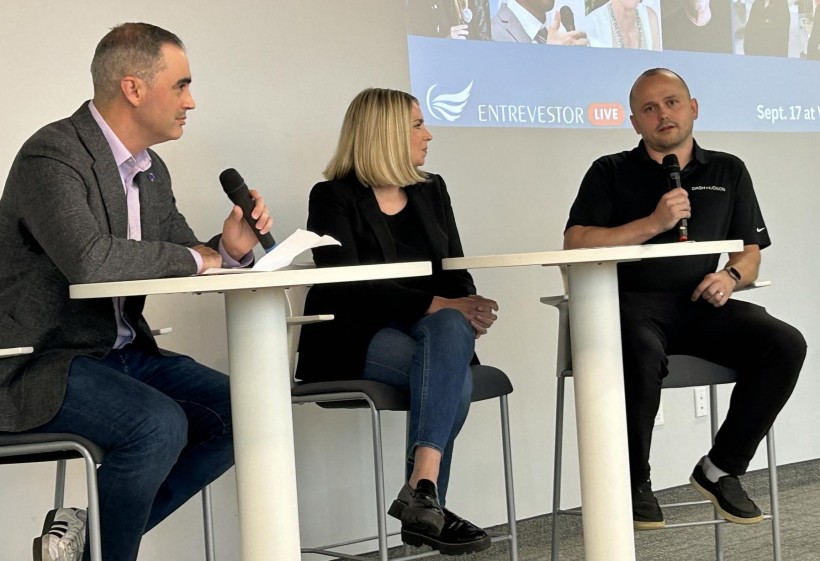It was a willingness to pivot based on market feedback that helped propel Halifax-based Dash Hudson to an enterprise employing 220 people, but it may have been a resolute focus on human resources that made the business sustainable.
Audiences at Entrevestor Live last month heard from Co-Founder Tomek Niewiarowski and Vice-President of Operations Jill Hennigar that while Dash Hudson was founded in 2013, the company did not arrive at its current business model until 2016, when it started providing analytics services to brands that sell through Instagram. The Dash Hudson panel was sponsored by Grant Thornton and moderated by the firm's Halifax-based partner J.P. Furey, who is also a former startup CEO.
Moving to the business-to-business sales model would prove key to Dash Hudson’s growth and surge in revenues, Niewiarowski said, because it allowed the team to pursue much more valuable contracts than the monthly subscriptions commonplace with consumer-facing apps.
“At the beginning, it’s very hard to manage burn rate and stay afloat,” recalled Niewiarowski. “It was very eye-opening when you can sign a $50,000 deal, and it gives you a few months of runway, versus chasing a thousand $50 bills. That was a hugely eye-opening moment, when we switched to B2B.”
Niewiarowski and CEO Thomas Rankin originally conceived of their company as an analytics platform called Pathmata for large retailers. The duo would go on to pivot several times in just a handful of years, with products that ranged from a menswear app to a marketplace where brands could hire influencers. The company last raised capital in 2018.
Niewiarowski recalled that, before the pandemic, the Dash Hudson sales people were mostly on airplanes non-stop. “Our development is driven by customer need," he said. "We do a lot of interviews and custom work for enterprise customers. As long as the contract size is right, we can be very flexible in what we provide.”
It was the buzz Dash Hudson generated within the East Coast startup ecosystem with that sales strategy that drew Hennigar to the company, she recalled. Her husband Trevor Hennigar is a co-founder of marine electrification startup Bluegrid, and in 2019, he returned from a conference at which he had heard Niewiarowski speak.
“He came home from the conference after hearing Tomek speak, and he said very confidently, ‘You’re going to work at Dash Hudson one day. … You really like fast-changing environments, I think they’re going to need a skillset like yours one day.’”
She initially dismissed the prospect of joining Dash Hudson because she had built her career at large corporates. It was advice from a friend who needed practice career-coaching to receive her license that encouraged Hennigar to try out a smaller organization, with one of Dash Hudson’s investors subsequently helping to recruit her.
When she joined the company, it had about 60 employees. Now, it has roughly 220. For veteran HR exec Hennigar, that meant the business’s internal culture and management processes needed to be carefully planned for scaleability.
“We hire a lot, and it’s not an administrative function,” she recalled. “Tomas is still heavily involved. He’s always on (Atlantic Canadian-owned job search site) CareerBeacon. … HR isn’t even involved in our true hiring process. We set the processes and enable the teams to do it, but the managers are responsible for building their teams, and so we really empower them to do that.”
Much of what has made Dash Hudson’s culture well-suited for scaleability Hennigar added, is her own and the company’s focus on creating structured, repeatable processes and finding ways to measure outcomes.
“You have to measure the culture, which is not always intuitive,” she advised attendees. “We survey our team twice a year,and this allows us to keep an eye on some really key points that are critical to our success. … Ninety-five percent of our team feels respected at work, 88 percent feel a sense of belonging, and 92 percent trust their manager. Those things are foundational before you think about other parts of the company.”










